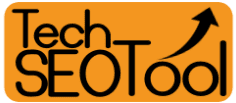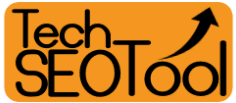Currently, skills-based hiring has become one of the main methods for recruiting talent.
Recruitment is no longer limited to university degrees, as not everyone who holds a degree in a specific field is necessarily qualified to work in that field. The key factor is proficiency in the skills required for the job.
A study conducted by LinkedIn revealed that 81% of hiring managers believe that skills should be prioritized over degrees when hiring. The data also showed that 40% of companies rely on skills to select their employees.
Therefore, anyone looking for their dream job or wanting to change their work environment should focus on showcasing their skills to successfully pass the initial stage of the hiring process.
In this article, we will review the different types of skills and the essential skills that should be included in any resume.
We will also provide examples from various fields and discuss the specific skills relevant to them, concluding with tips on how to effectively present skills in a resume.
First: Types of Skills
1. Soft Skills
Soft skills are the abilities that indicate how an employee performs their job. These skills are intangible and may be inherent personality traits, but they can also be acquired through life experiences, both in and outside of work.
Every resume should include a range of soft skills. There are essential soft skills required by most jobs, and additional soft skills that are specific to certain positions.
Soft skills include communication, teamwork, attention to detail, time management, problem-solving, creativity, adaptability, organizational and planning skills, and emotional intelligence.
2. Technical Skills
Technical skills are specific to performing particular jobs and are usually learned through education, training, or work experience.
Each job has its own set of technical skills. For example, a graphic designer needs to master software such as Photoshop, Illustrator, and InDesign. An accountant needs to be proficient in Excel, and a human resources manager should be skilled in conducting interviews.
3. Transferable Skills
Transferable skills are abilities acquired from one job that can be used in another. These skills can be either personal or technical.
For instance, someone who works as a programmer can apply their programming and problem-solving skills in a job as an IT instructor.
Second: Required Skills for Any Resume
1. Essential Soft Skills for Any Resume
A) Communication Skills
HR managers emphasize communication skills because employees need to interact with colleagues, supervisors, and clients. Effective communication enhances the work environment, increases productivity, ensures customer satisfaction, and represents the organization well during meetings and negotiations.
Types of communication skills include:
- Verbal skills: Clearly expressing ideas and feelings.
- Non-verbal skills: Eye contact, body language, and tone of voice.
- Writing skills: Correspondence and email writing.
- Presentation skills: Public speaking and using visual aids.
B) Teamwork Skills
HR managers look for candidates with teamwork skills to ensure they fit into the organization's culture and collaborate effectively. Teamwork leads to increased productivity, innovative problem-solving, skill development, motivation, and adaptability.
C) Leadership Skills
Leadership involves managing, motivating, and inspiring others. Essential leadership traits include motivation, commitment, strategic thinking, relationship-building, and coaching. Employees with leadership skills take initiative and responsibility, enhancing the organization's performance and reputation.
D) Problem-Solving Skills
Employers value candidates who can creatively and effectively solve problems. Innovative problem-solving increases a candidate's chances of being hired.
E) Self-Motivation
Self-motivated candidates demonstrate persistence and a drive to achieve goals, leading to higher productivity and exceptional performance. Employers seek individuals with internal motivation to overcome challenges and maintain enthusiasm.
2. Essential Technical Skills Depending on the Job
Here are key technical skills for various professions:
A) Software Engineer
Critical technical skills for a software engineer include:
- Programming languages: Proficiency in languages like C, Java, and Python.
- Software and systems development.
- Database management.
- Version control tools: Experience with tools like Git.
These skills ensure the candidate can perform the specific tasks required for the job effectively.
B) Doctor
Key technical skills for a doctor include:
- Assessing symptoms: Evaluating patient symptoms accurately.
- Medical diagnosis: Making correct medical diagnoses.
- Understanding health laws and regulations: Knowledge of legal and regulatory aspects of healthcare.
- Interpreting medical reports: Analyzing and understanding medical documentation.
C) Data Analyst
Essential technical skills for a data analyst include:
- Data analysis: Proficiency in analyzing data.
- Programming languages: Skills in languages such as Python or R.
- Data visualization: Ability to present data visually.
- Database management: Managing and maintaining databases.
D) HR Manager
Important technical skills for an HR manager include:
- Knowledge of labor and employment laws: Understanding relevant legal frameworks.
- HR management software: Proficiency in using HR software.
- Interviewing: Conducting effective job interviews.
- Employee data analysis and reporting: Analyzing and reporting on employee data.
E) Project Manager
Critical technical skills for a project manager include:
- Project management software: Expertise in tools like Microsoft Project or Trello.
- Strategic planning: Planning project strategies effectively.
- Budgeting and cost estimation: Preparing budgets and estimating costs.
- Risk management: Identifying and managing potential risks.
F) Graphic Designer
Key technical skills for a graphic designer include:
- Design software proficiency: Mastery of tools like Photoshop and Illustrator.
- Print and digital design: Skills in both print and digital media.
- Understanding color theory: Knowledge of color principles.
- UI/UX design: Designing user interfaces and improving user experiences.
G) Accountant
Essential technical skills for an accountant include:
- Accounting software: Proficiency in using software like QuickBooks or SAP.
- Preparing financial statements and reports: Creating accurate financial documents.
- Understanding accounting and tax standards: Knowledge of relevant standards.
- Auditing accounts: Conducting thorough account audits.
These skills are essential for excelling in each respective field and should be highlighted on resumes to increase the chances of securing a job.
3. Examples of Required Personal and Technical Skills in Various Fields
Here we review some fields to see what skills are necessary in each field, whether they are personal or technical skills.
A) Sales Field
Personal skills required in the sales field include:
- Teamwork
- Time management
- Negotiation
- Public speaking
- Persuasion
- Empathy
Technical skills required in the sales field include:
- Customer Relationship Management (CRM)
- Closing deals
- Lead generation
- Buyer-responsive selling
- Buyer engagement
- Product knowledge
- Social media/digital communication
B) Education Field
Personal skills required in the education field include:
- Communication
- Enthusiasm
- Motivation
- Patience
- Critical thinking
- Stress management
Technical skills required in the education field include:
- Lesson planning
- Updated curriculum knowledge
- Research and data analysis
- Educational platforms
- Technological and digital literacy
C) Design Field
Personal skills required in the design field include:
- Active listening
- Creativity
- Attention to detail and aesthetics
Technical skills required in the design field include:
- Proficiency in Adobe programs like Illustrator, InDesign, and Photoshop
- Proficiency in Dreamweaver
- Infographic design
- Photo editing
- Logo creation
- Digital printing
- Interactive media design
- Color theory
- Ad design
Third: How to Write Skills in a Resume
- Read the job description carefully.
- Identify the required skills.
- Use the keywords and phrases mentioned to describe the skills in your resume.
- Ensure the resume file is in PDF or Word format.
- Use a simple format and standard fonts.
- Avoid including images, graphics, icons, and tables.
- Review and proofread the resume to be error-free.
Important Tips for Writing Skills in a Resume
1. Mention Relevant Skills Only
2. Place Skills in a Separate Section
3. Clarify Your Proficiency Level
- Beginner: Familiar with the basics but lacks extensive practice.
- Intermediate: Practices the skill but may need occasional assistance.
- Advanced: Proficient without needing help and can teach beginners.
- Expert: Highly knowledgeable, capable of answering any questions related to the skill.



